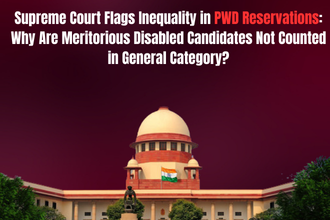In a significant ruling that reaffirms the boundaries of criminal liability under Section 306 of the Indian Penal Code (IPC), the Supreme Court has held that merely using abusive or insulting language such as calling someone “impotent” does not constitute abetment to suicide in the absence of direct instigation or sustained cruelty. The case titled Shenbagavalli & Ors. v. Inspector of Police, Kancheepuram District & Anr. marks a critical intervention by the top court in distinguishing between moral wrong and criminal culpability.
Background of the Case: FIR for Abetment of Suicide Based on Suicide Note
The case originated from a tragic incident where a man died by suicide and left behind a note blaming his in-laws for alleged harassment and humiliation, including being called “impotent.” The remarks were reportedly made while the deceased’s wife was being taken back to her parental home following a marital dispute.
Acting on the contents of the suicide note, an FIR was registered under Section 306 IPC against the deceased’s in-laws. The accused approached the Madras High Court seeking quashing of the FIR, but the High Court declined relief, observing that the matter involved disputed facts that required trial.
Dissatisfied with the High Court’s decision, the in-laws moved the Supreme Court.
Supreme Court’s Verdict: No Mens Rea, No Abetment
A bench comprising Justice Abhay S. Oka and Justice A.G. Masih overruled the Madras High Court and quashed the criminal proceedings against the appellants. The Court held that the essential ingredients of the offence of abetment of suicide under Section 306 IPC were not made out.
“Merely because the act of an accused is highly insulting to the deceased by using abusive language would not by itself constitute abetment of suicide. There should be evidence suggesting that the accused intended by such act to instigate the deceased to commit suicide,” the bench noted.
The Court emphasized the absence of mens rea, or criminal intent, in the case and held that the insult alone, however hurtful, could not be construed as instigation or direct encouragement to commit suicide.
Key Legal Reasoning: Section 306 IPC Read With Section 107 IPC
The Supreme Court reiterated the foundational principle that the offence under Section 306 IPC must meet the requirements of abetment defined under Section 107 IPC. The latter defines abetment as:
- Instigation to commit the act;
- Conspiracy in doing the act;
- Intentional aiding in the commission of the act.
The Court clarified that none of these three components were satisfied in the present case.
“Mens rea cannot be presumed, but must be ostensibly present and visible, which is missing in the present case. It involves a mental process of instigating a person, and without a positive act…the ingredients of the offence cannot be said to have been present,” the Court held.
Gap Between Alleged Incident and Suicide: A Critical Factor
The bench also noted the time lapse between the alleged insult and the act of suicide. The incident involving the in-laws allegedly occurred nearly a month before the suicide, and there was no contact or interaction between the deceased and the accused during the interim.
This temporal gap, coupled with the lack of ongoing harassment, undermined the theory of persistent cruelty or provocation, which is necessary to establish abetment.
Reliance on Precedent: M. Arjunan v. State
The Court cited its previous judgment in M. Arjunan v. State, which held that mere allegations of harassment without evidence of intent to provoke or instigate suicide do not constitute abetment.
In the words of the Supreme Court:
“In a large number of judgments, it stands established that the essential ingredients of the offense under Section 306 IPC are: (i) abetment; (ii) intention of the accused to aid, instigate or abet the deceased to commit suicide.”
The Court thus found the ingredients lacking and concluded that the continuation of proceedings against the in-laws would amount to an abuse of the legal process.
Related Observations: Caution to Police and Judiciary
The Court made broader observations about the need for judicial and police caution in cases involving allegations of abetment of suicide.
In its related judgment in another case, the Court recently stated:
“Abetment of suicide cannot be invoked only to assuage the feelings of family members. It is high time police authorities are sensitised to the legal requirements.”
This highlights the Court’s ongoing concern with misuse or overextension of penal provisions like Section 306 IPC in emotionally charged cases.
Case Details
- *Case Title: *Shenbagavalli and Ors. v. Inspector of Police, Kancheepuram District & Anr.
- Citation: 2025 LiveLaw (SC) 512
- Judgment Date: May 1, 2025
- Bench: Justice Abhay S Oka and Justice AG Masih
Counsel Appearance
- For Petitioners: Sr. Adv. Rebecca John, Sr. Adv. Rachana Srivastava, AOR John Mathew, AOR Mona K. Rajvanshi, Adv. Monika, and Adv. Anurag Kashyap.
- For Respondents: Sr. AAG V. Krishnamurthy, AOR D. Kumanan, Adv. Deepa S, Adv. Sheikh F. Kalia, Adv. Azka Sheikh Kalia, Adv. Veshal Tyagi, and Adv. Chinmay Anand Panigrahi.
Implications of the Judgment
This ruling will have far-reaching implications for future cases involving allegations of abetment of suicide:
- Protects against misuse of criminal law in family disputes.
- Clarifies threshold for criminal liability under Section 306 IPC.
- Reinforces need for proof of intent and not mere emotional impact.
- Safeguards free speech and curtails exaggerated interpretations of verbal abuse.
Conclusion
The Supreme Court’s decision in Shenbagavalli v. Inspector of Police marks a crucial reaffirmation of the principle that criminal law must be based on clear and provable intent. Merely offensive or insulting remarks—however socially or emotionally disturbing—do not automatically amount to criminal abetment unless backed by deliberate instigation.
This case serves as a powerful reminder of the judiciary’s role in ensuring that personal tragedy does not become a tool for prosecutorial overreach, and that the line between moral blame and legal guilt remains firmly drawn.


